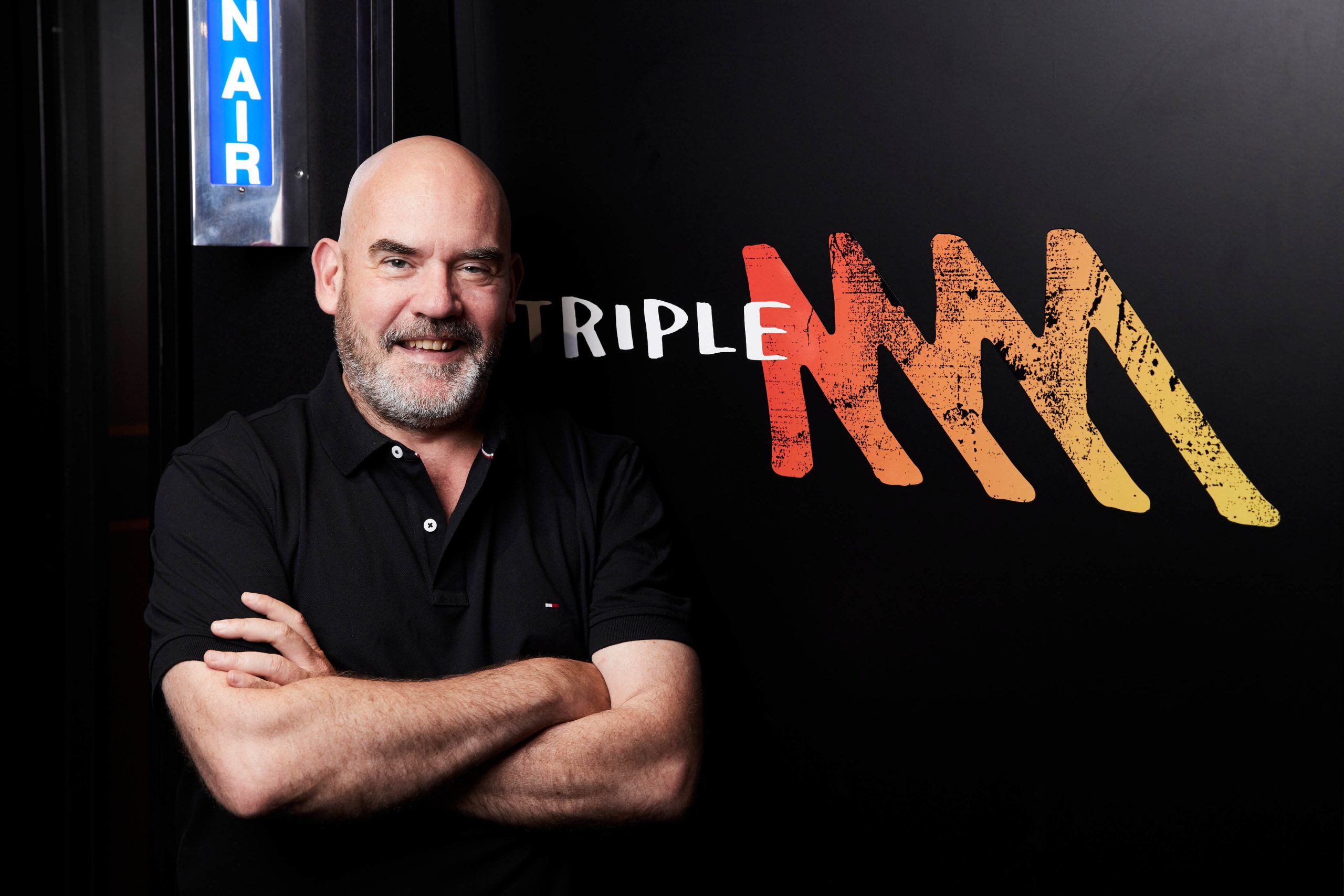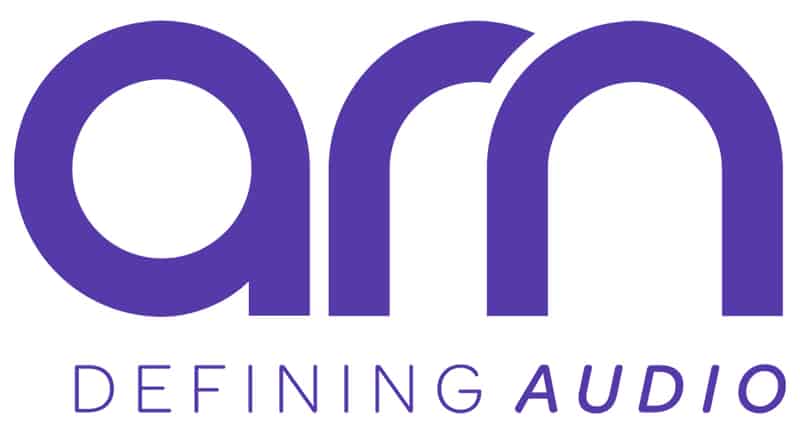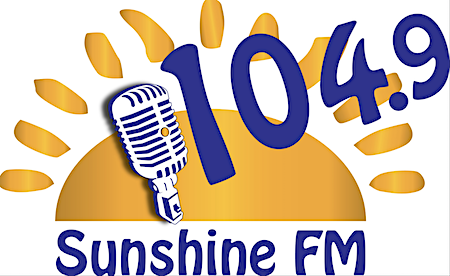Marty Sheargold predicts downfall of commercial radio within 10 years

One of the country’s most prominent Breakfast radio stars, Marty Sheargold, has painted a rather bleak picture of the medium’s future.
In a previous interview with Radio Today, the host of Triple M Breakfast in Melbourne joked he’d like his new show to last for at least 25 years.
Now, however, in an interview with News Corp, Sheargold has flagged the increasingly precarious commercial position of Drive shows and the looming threat of podcasting.
Until last year, Sheargold was part of the Nova Drive show Kate, Tim & Marty alongside Tim Blackwell and Kate Ritchie.
“I think the next five [years] will be okay,” he told news.com.au, “[but] I think the next 10 is looking interesting.
“I think this shift – 6am-9am – should always have a place in this space. I think Drive shift and stuff outside of that Breakfast shift will become harder and harder to monetise, and I think they’ll probably fall by the wayside.”
He added that a number of Drive shows are hamstrung by high talent fees “and I can’t see the return on that spend”. In addition, he noted that a few shows on offer are “clunky”.
And then, he said, there’s podcasting and its ability to gobble brands’ marketing budgets at the expense of radio.
“I think as we continue to look at that podcasting space and we really start to work out through data where they can target their marketing, I think that’s going to beat all of us in the end.”
Triple M’s owner, Southern Cross Austereo (SCA), has invested heavily in recent months in its new digital audio paltform LiSTNR, which houses its catch-up radio shows, as well as podcasts, music streaming, digital news and event guides. SCA has been pushing the idea that the platform now sits at the centre of the business, rather than an acting as an add-on, and the company has been hoping it will help it cash-in on the digital audio evolution.



I would agree with Marty that the Kate, Tim and Joel show sounds clunky
Kate screams and Joel fake giggles at everything
I’m always interested to hear what Mr Marty “I rate 6%” Sheargold thinks about things
Late to the party BIG DOG? You’re not supposed to tell the kids on 38k or the clients who can’t work their phone for at least another 5 years. Way to keep the guys applying for the Kalgoorlie job SCA.
Marty, old, irrelevant and Mr 5% is now an industry futrurist. This will help the SCA share price.
Wanker ! The difference between Kyle and Marty ? Kyle rates well.
Not sure why RT would even publish this. It doesn’t help the industry.
Hugely inaccurate. Live radio has survived everything – and will survive the podcast craze.
Not sure why on-air talent are suddenly expert opinions of industry… a bit like podcasts I guess, everyone has to have one…
One thing is for sure – in 5 years time when we are ready to check in on this post, Marty’s program will not be on the air.
There is nothing sadder to me that traditional media folks absolutely refusing to see the reality burning the house down around them.
That is the exact reason the house is on fire – refusal to believe it’s not 2002 anymore and that consumption habits may have changed.
All that aside, nameless hacks attacking Marty’s current, new show rating figures while pretending to forgot how he’s rated the majority of his career is priceless.
If radio, especially music radio, is to survive long term a return to live and local is essential.
Networked radio, especially when recorded interstate and/or time delayed into states such as WA, hardly provides incentive for locals to listen.
When Martin/Malloy concluded at the end of 1998, stations returned to local drive shows for a while. The local programs outrated Martin/Molloy. Few, especially in interstate offices, seem to understand local beats networked.
The McDonald’s principle is killing radio. The major issue stems from the industry being run by bean counters directed by the manager of your superannuation fund and venture capital vultures. Neither properly understand, nor likely care, how programming and revenue are intrinsically interwoven.
Radio really needs to understand how it is to remain a relevant, competitive medium in the ever changing modern technological world. The Late Kerry Packer went nuts if Channel 9 failed to rate at least a 40 share every night. Packer, who was a hard nosed businessman, understood the connection between ratings performance and revenue.
Kerry Packer appreciated his media assets and what was needed to keep them at the top. An ongoing number 1 rating product always attracted voluminous revenue through an abundance of advertisers paying top dollar.
Cloned meaningless callsigns with interstate capital city heritage coupled with vanilla one size fits all programming inflicted by disconnected management from the other side of the country, or interstate, isn’t going to cut it.
One day, some will wonder why the medium is neither consumed nor viable. Unfortunately, those with the power to bring about change through understanding of the new reality are least likely to do so.
The simple, yet largely unasked, question is: What can people get from radio they cannot get from other streaming sources such as Spotify?
The answer should be an abundant and unique amount of quality content. Unfortunately, for most stations, it is not. My 21 year old and his mates do not listen to the radio at all. His girlfriend recently bought an older car and the first thing she asked was if I could install a bluetooth kit for her because, “it only has a radio”.
She couldn’t fathom being forced to listen to radio because it’s a medium she never consumes having long ago determined it offers nothing of interest.
The little things that matter are ignored. Traffic reports with mispronunciations are a prime example. The instant that occurs, local audiences know the report is recorded out of state or region and station credibility is shot in the process.
The above highlights two issues.
1. Lack of quality control within the group providing the service. To be fair, many mispronounce without being aware. If you’re never told how can you know? The same words are often pronounced differently from state to state.
Berwick is a prime example. Berrick in Victoria, Berwick in WA.
2. No quality control from the receiving station. Auto record, auto load, nobody checks before the report is aired.
Why does this occur? Because bean counters are tight fisted and refuse to employ local talent with essential knowledge. Instead, people from interstate with a dearth of local understanding are employed with commensurate unsatisfactory results.
Radio needs to get serious before it goes the way of the Dodo bird. It can, although a determination to do so is required.
Another major problem for broadcasting is people with little or no industry knowledge or experience. Radio is one of very few industries where people with no prior experience can instantly be placed in senior positions with significant influence and power.
With the way the idoits are running the networks.. Yes he is 100% correct
Look at the states, for the last few years the list of AM stations handing their licences was getting bigger and bigger.. now FM stations are handing their licences in.
I love the medium but the end is nigh but they will continue to beat the dead horse and act like it’s 1981
Sure radio has “survived” everything, that’s not through luck or Australia’s fascination with the medium. It was through the industry’s ability to adapt.
We have stopped adapting because we are too… egotistical to get out of our own way.
Good on you Marty for speaking your mind. Not enough people do it in your position and it might make some of the old school lazy programmers take note.
Look at the TSL trends, especially the younger end. They’re down by 25%. It’s obvious why, there’s more choice now.
All the radio companies sit in strategy sessions and discuss at length exactly what you have outlined and how to counteract it. Why are they all pushing into podcasting, to try and counter the decline of radio.
I’ve always thought you’re a smart bloke.
I predict the demise of Marty Sheargold in less than 10 months.
No one is interested in listening after breakfast ?
Maybe blame the stations for just promoting the brekky show all the time, which seems to be every station in Australia.
Most listeners dont want for much.. Play non repetitive music , fun jocks, good local/ national news base, it aint rocket science ..or is it ?
As long as there are heads of programming that think re running the same cash competitions a million times and TV and poster campaigns are the way to go, Marty is 100% right.
Unfortunately the challenge is well beyond the capability of old school programming minds that do the same thing over and over.
Definition of insanity…..
Will be interesting to see whether advertising and content drifts towards the way podcasts and Spotify are laid out. Stop running 3 minutes of ads in a row and actually spread things out more. One ad between every two songs, more integrated ads. The way that most local stations are just networking metro shows and throwing in huge ad breaks all night isn’t giving the next generation much of a reason to tune in.